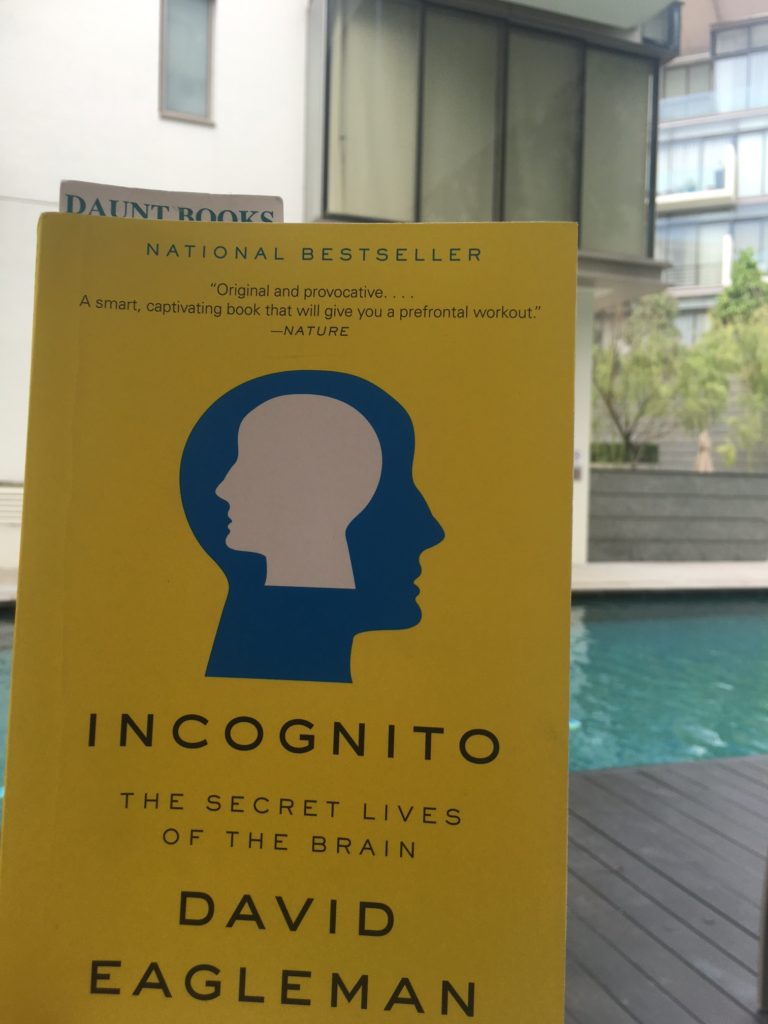I do not know if it is a coincidence, but I have started reading quite a lot of neurology books recently.
Incognito by David Eagleman was recommended by someone who I really value and I immediately ordered it through Amazon in September, but it only arrived in Singapore in early October.
The author discusses how we run mostly on autopilot and how little we are conscious when we are living our normal lives. One of the provocative parts of the book is: even though we are in a consciousness state in most of our lives, we are not able to access this part of the brain. According to the author, this consciousness is carved by natural selection to solve problems our ancestors faced during our species’ evolutionary history or simply by practising something so hard that it becomes part of our lives such as a tennis player serving a ball or a driver driving a car.
He discusses that when an idea comes to your mind, your unreal circuitry has been working on it for hours, or days, or years, consolidating information and trying out new combinations.
It is just like the apple that fell down from the tree onto Newton’s head and he discovered gravity. He had already been working on it quite hard so that the apple falling from the tree and hitting him on the head was just the last touch to the ball to cross the line for the goal!
He emphasises that the conscious mind is not at the centre of the action in the brain; instead, it is far out on a distant edge, hearing but whispers of the activity.
One of the interesting examples that he uses in the book is that we believe that we see naturally but actually we learn to see and it is interesting that the majority of human beings live their whole lives unaware that they are only seeing a limited cone of vision at any moment.
There is a very provocative blind spot exercise that I will leave you to find out whilst reading the book.
He argues, “Just because you believe something to be true, just because you know it’s true that doesn’t mean it is true.”
According to the author, many people are found to have the neural ravages of Alzheimer’s disease upon autopsy – but they never showed the symptoms while they were alive. This is because these people continued to challenge their brains into old age by staying active in their careers, doing crossword puzzles, or carrying out any other activities that kept their neural populations well exercised. As a result, they built cognitive reserve.
The author gives many very interesting examples throughout the book, which I will leave you to discover. He discusses that a slight change in the balance of brain chemistry can cause large changes in behaviour and he adds that the behaviour of the patient cannot be separated from his biology.
The conclusion is: human behaviour will always remain unpredictable and we are not really responsible for all our actions, since many parts of the brain lead us to do a lot of stuff against our will. In addition, he believes the legal system and punishments should be adjusted to the state of the criminal’s brain where they may not be responsible for their actions, but his brain would (!)
Finally, David Eagleman has a more recent book, Brain: The Story of You, and he has a website, www.eagleman.com, where you can follow him.
Best from Singapore.
Sukru Haskan
Twitter: @sukru_haskan
